The history of religious conflict in the Middle East carefully leaves out periods of coexistence
The exodus of Christians from the Middle East is real and tragic. So are attempts by the Saudis to reheat divisions between Sunnis and Shia. Are we right to view the region as a place of sectarian strife, asks Robert Fisk. Or is religious coexistence in the Arab world much stronger than antagonism and violence?

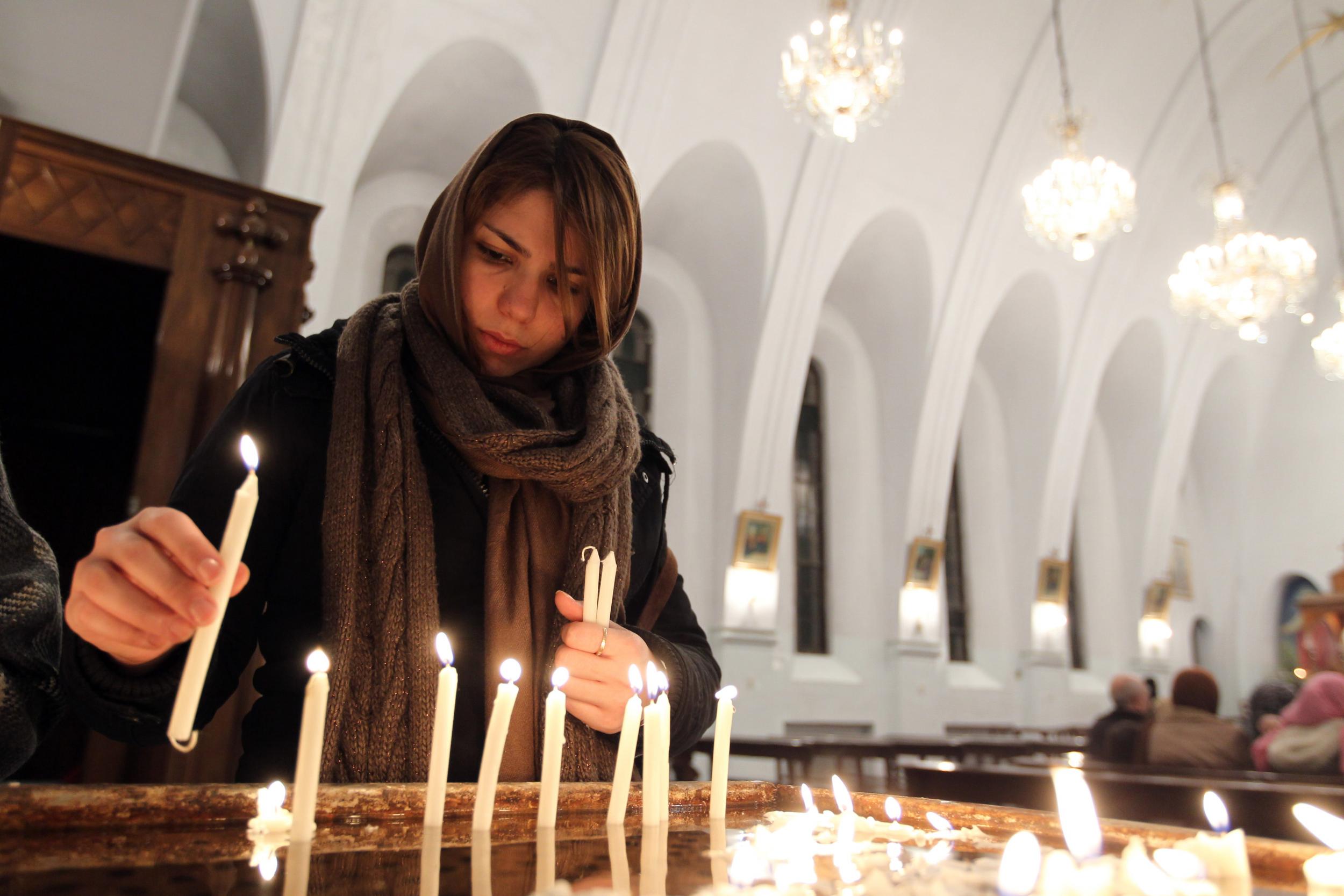
There are two stories that I and my colleagues have been writing about the Middle East for more than 40 years. Both are wrong. The first is that the next war will be about water. Or the lack of it. I started writing about the conflict over H2O when I visited Aleppo and found that the Queiq river – which was supposed to run beneath the fine white stone bridges in the city centre – only reached the outskirts as a two-foot wide stream of sewage.
Turkish dams had destroyed the Quieq. Then Turkey decided to build dams on the Tigris – and the waters of that great river started to fall in Iraq. The Lebanese claimed that the Israelis were stealing water from the Litani river in southern Lebanon. There were secret pipelines in deep valleys invisible from the air, they said. I trudged with UN soldiers through the actual river, downstream, in these dark ravines. But there were no pipes.
And there’s been no war. The second, far more sinister, story we’ve all covered is that the Middle East is a sectarian quagmire in which religion and faith have created an age-old antagonism between Muslims and Christians, between Sunni Muslims and Shia Muslims and between Muslims, Christians and Jews. The region is therefore permanently at war, its people poisoned by sectarian hatreds and doomed to eternal conflict – which we civilised westerners must occasionally step in to sort out.
Didn’t the French and British arrive in Lebanon in 1860 to stop the Druze slaughtering the Christian Maronites? Didn’t the British have to intervene to stop fighting between Muslim and Christian Palestinians and Jewish immigrants in Palestine between 1920 and our humiliating retreat in 1948? Didn’t the Americans and British and French and Italians arrive in Lebanon to end a Christian-Muslim civil war in 1982? Didn’t the Americans have to send their troops to separate Sunni and Shia death squads in 2004 and 2005 and 2006?
In our reports – certainly in mine – much emphasis was placed on the suffering of Catholic Maronites in Lebanon, Copts in Egypt and Catholics and other Christian sects in Iraq. They were being slowly driven from the Holy Land, we would write. I recall visiting a clutch of burnt-out Egyptian churches and bombed churches in Iraq. The headlines – for obvious reasons – always used the word “exodus”. And the flight of the Christians – to Europe, America, Australia – was always “of Biblical proportions”.
And like all good stories, there was an element of truth in all this. Yet on the ground, I found that the Christian priests and vicars and bishops, while acknowledging their people’s persecution, would often plead with me to record their own wish: that the west would stop encouraging their flocks to leave, that it should persuade the Christians to stay in their homes in the Arab world.
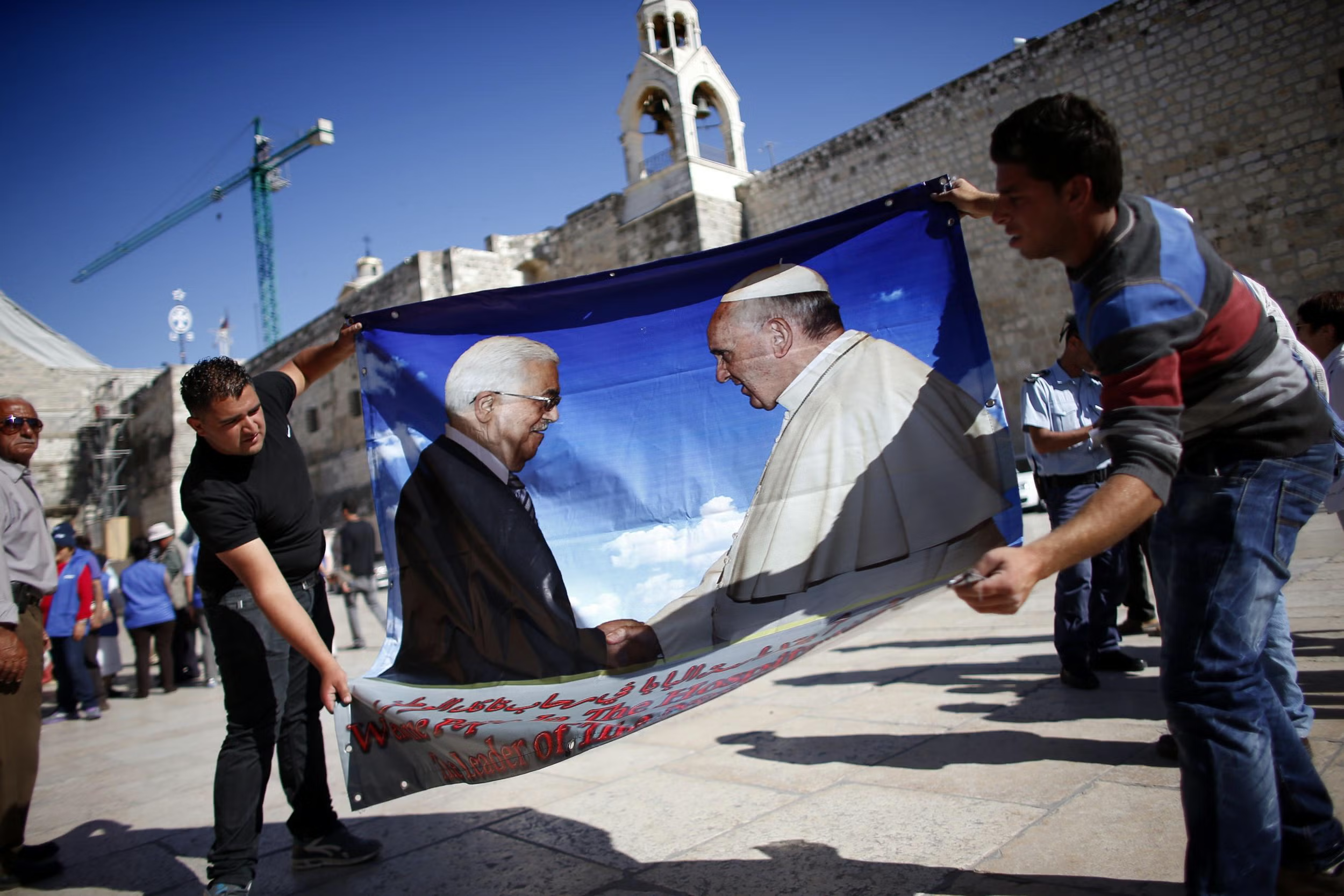
In the northern Syrian city of Qamishleh, I sat beside a church with a group of Orthodox and Catholic bishops and clergymen in a variety of black hats and red sashes. The Syrian war had been underway for four years. Please, they begged, stop telling Christians to leave the Middle East. We had been attending a Syriac wedding where clerics were bedecked in gold, scarlet and black robes. There were hosts of blazing candles, a multitude of blessings, and much ululating; a very definite reminder that Christianity was an Eastern – not a western – religion. But of Qamishleh’s 8,000 Christian souls, only 5,000 remained. Isis had seen to that. Most of the Christians were Assyrians, the descendants of the 1915 Assyrian genocide, which accompanied the far larger holocaust of a million and a half Armenian Christians at the hands of the Ottoman Turks.
The clerics in Qamishleh – part of it still held by the Syrian regime, the rest by the Kurds – believed that their latest “exodus” (there I go again) only began after the 2003 Anglo-American invasion of Iraq whose architects, as we all know, were born-again Christians. One of the priests spoke loudly and with considerable anger. “This loss of Christians is a very negative thing,” he said.
“The countries which encourage them to leave do not have their best interests at heart. They want to dissolve them in their societies. The Orient is a mosaic of the different peoples, and the west does not like this. If the west really wants to help us, they should help us to stay here and live in dignity. But as long as there is a crisis, our people want to leave.” There was some discussion about the Gulf Arab support for Isis and Nusra, the new version of al-Qaeda, and the Gulf Arabs’ desire to drive the Christians from the Middle East.
Among the priests was a certain Father Gabriel, tired and sick since he fled his Syriac church in Deir ez-Zour in July 2012. “Nusra totally destroyed our church there and all our houses,” he said. “We thought we would be able to return in about 15 days”. Which is, I noted at the time, what the Palestinians – Christians as well as Muslims – thought when they fled their homes in 1948. “The west is not receiving us because theirs are Christian countries. They are secular countries. In a couple of generations, the Syriacs in the European countries will have disappeared.”
The west is not receiving us because theirs are Christian countries. They are secular countries. In a couple of generations, the Syriacs in the European countries will have disappeared
Father Saliba recalled how Isis had captured the northern Iraqi city of Mosul, burnt its churches and libraries and established its “Islamic State”. “France said: ‘We will take the Christians in’, but we believe we should live here…. Now Isis tries to destroy us so we will have no place in this country. We knew early on that this was an existential challenge to our presence in the Middle East.”
But, I thought at the time, hasn’t the presence of Christians in the Arab world always be an “existential challenge”? I recalled how in Lebanon, I had once been taken on a scholarly tour of the tiny Maronite Christian parishes high above the Mediterranean, squat humps of churches in the hills north of Beirut, the sun white on their stones, sometimes built over Roman temples, much as Muslims would later construct their mosques within or around Christian churches. In many cases, the eyes of the saints and holy men of Christianity on the ancient church frescoes had been gouged out; and local Maronite villagers told us that this was the work of the Muslim invaders of the eighth century.
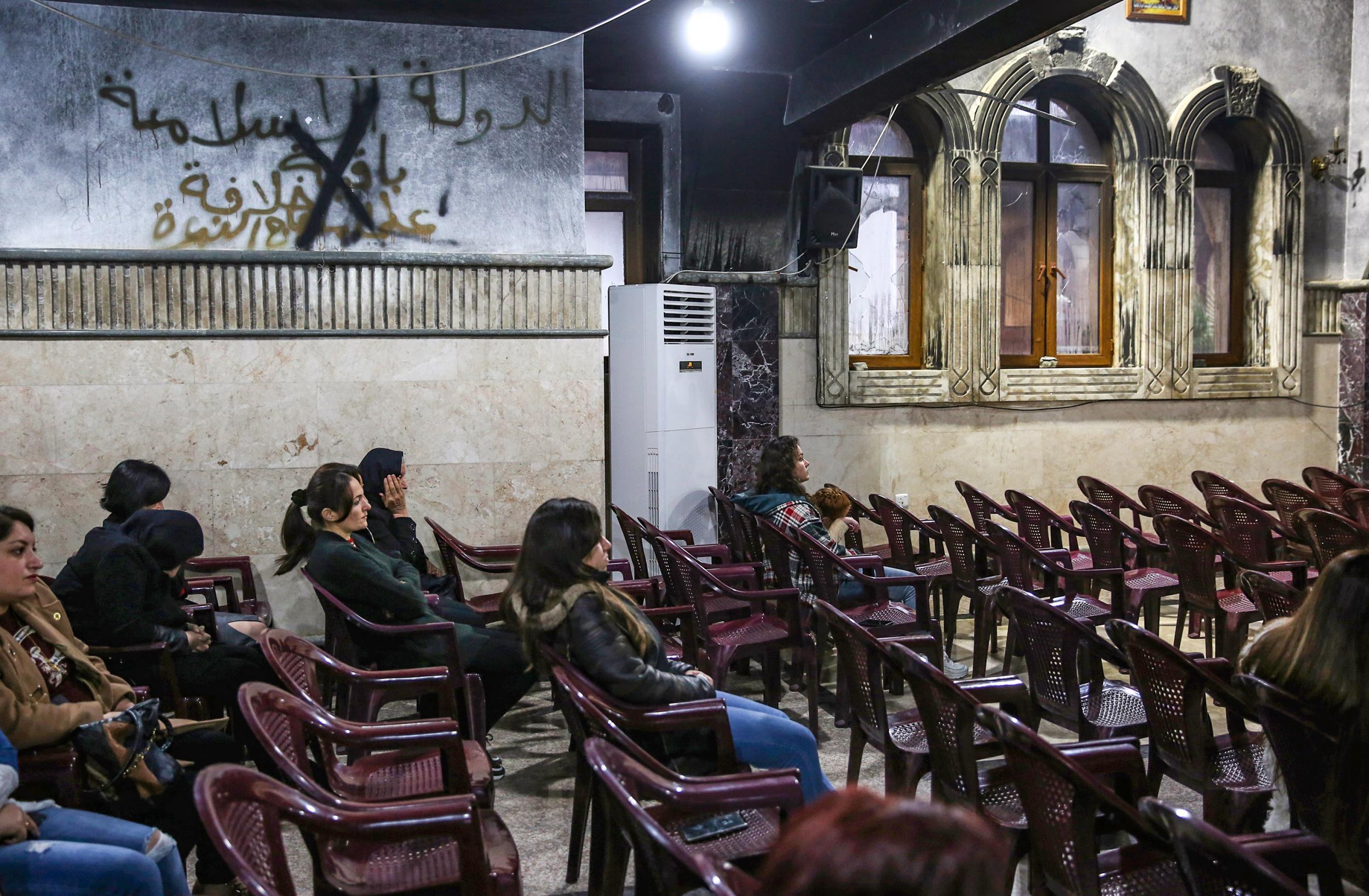
Untrue, said the experts. Many monasteries converted to Islam and the monks themselves cut the eyes from their own Biblical heroes in order to conform to the Muslim world’s refusal to countenance the portrayal of a human face in a place of worship. French academic Christian Decobert believed that when the Arabs arrived in Egypt, the Near East and in North Africa, all the countries were Christian. “Half of the Persians were Christian ... Under the Byzantines, there was a man of religion who had power and very frequently he was in charge of the collection of taxes,” Decobert said.
When the Arabs began to settle in their newly conquered lands, they decided to create an administration. And of course – this is my own interpretation – they needed tax collectors. “Some monasteries disappeared,” Decobert said. “Some survived. Some converted to Islam – this was nothing to do with faith, it was about the cultural system. And the first people who converted to Islam were the monks. So the heads of the monasteries became key people in the Islamic system. There was no distinction between religious and economic life.”
Kamal Salibi, one of the finest of Lebanon’s modern historians – a Protestant and an old friend, he died almost eight years ago – wrote a short but revealing book called A House of Many Mansions, which will still be read a 100 years from now for its historical revelation and its wisdom. He insisted that the Maronites did not come to Lebanon as a persecuted people from the Orontes valley, as they claimed, and that they had in fact begun their life as heretics. As the years passed, Salibi, a professor at the American University of Beirut, became even more sensitive to what he called the “Muslim predicament” in the Middle East.
And it is indeed strange that although they remain a profound minority in the region, the Christians of the Arab world should have become not just a sounding board for Islam, but a minority fine tuner on the instrument of coexistence between two great religions, more often than not in harmony but with a distressing habit of producing discord – to the delight of religious extremists and, alas, of politicians and journalists.
Writing my new book on the Middle East, scheduled to be published next year, I intended to devote my chapter on religion to Muslims and Islam. But it was instructive for me to discover, as I worked on the chapter, that it was turning out to be, primarily, about Christians. Perhaps I can give readers a hint as to why this is the case by quoting directly from my text. Needless to say, blood and pain and betrayal crowd the many pages before and after the chapter on religion.
Salibi complained about those who say there was never a “renaissance” in Islam to match the Renaissance of 15th- and 16th-century Europe. There was a great deal of very original thinking within Islam, he maintained, and “science and philosophy flourished, because [Muslims] drew a line between religion and intellectual activity. They said the religion is ‘this’ – [but] it does not say we have no right to investigate the relevance of science and medicine or how to study the stars or how to consider metaphysical questions or ethical questions independently of the Quran.”
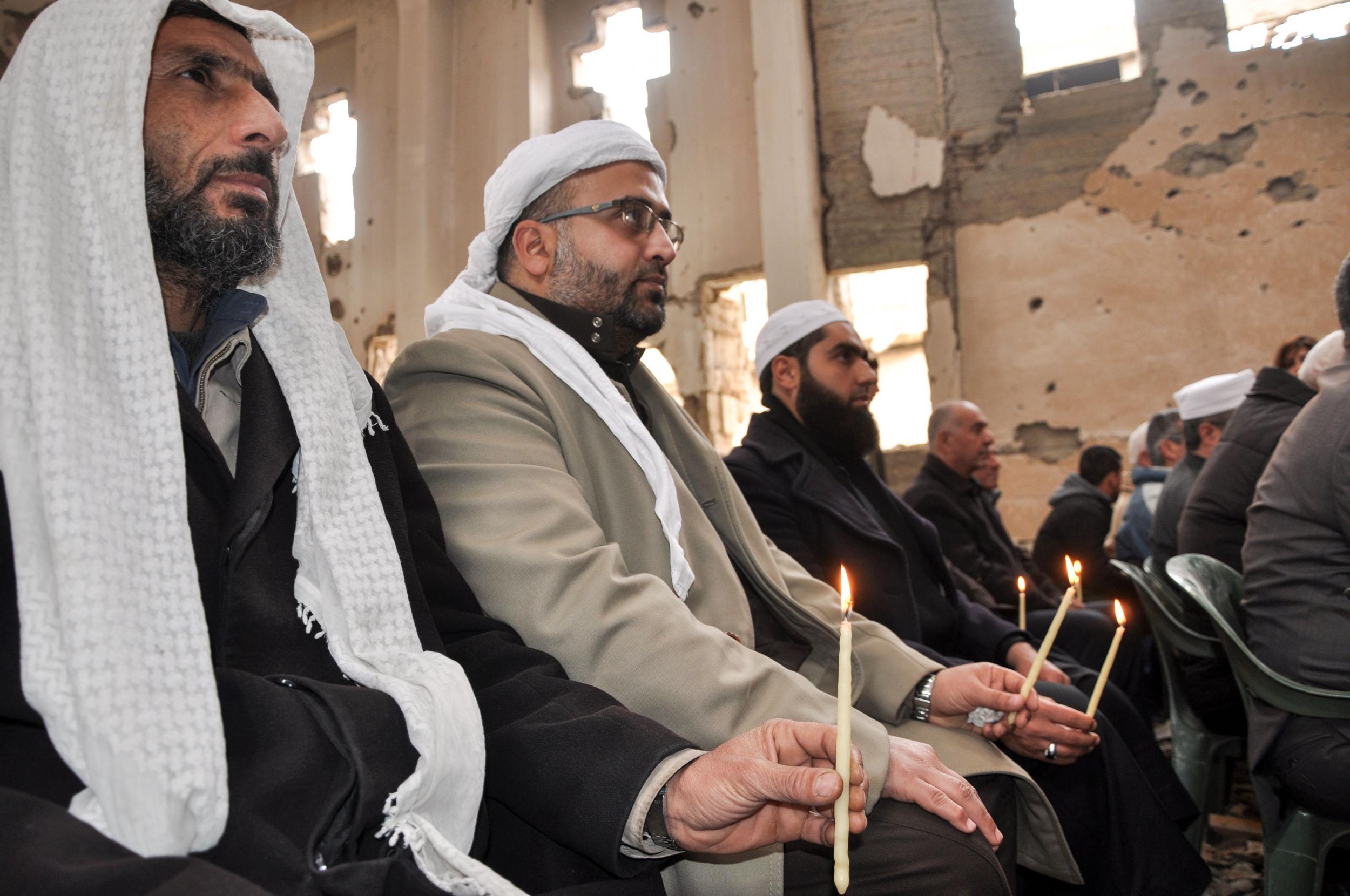
Yet in modern times, Salibi asked, “what traditional civilisation could continue to stand on its feet once the west Europeans – partly as a result of their special genius, partly as a result of their geographical location, partly as a result of their guts and their luck – found a way of going around Africa, crossing the Atlantic and reaching the Americas, tapping wealth beyond the dreams of avarice all over the world ... reducing the whole world to relative poverty and to increasing poverty. Well, from that moment on, the Muslim world and other legitimate civilisations ... could no longer stand in the face of the west. And this is the situation which continues to the present day.”
Salibi’s heroes included Mohamed Ali Pasha, the modernising Khedive of Egypt and Sudan, along with the Ottomans whom Mohamed Ali Pasha served with ever less enthusiasm. Both were trying to emulate western education and training, even to learn western music and art. “You have the last Sultans, all of them being pianists and playing Mozart and trying to paint and reading western books,” Salibi said. “Now normally this is forgotten. And what Mohamed Ali Pasha did to Egypt was little short of a miracle. What the Ottomans did in reforming the Ottoman Empire in the 19th century was nothing short of a miracle. Except that, of course, what they were faced with was western admiration on the one side [but] the western fear that this was going to result in a resurgence of a militant Islam on the other.”
Over Salibi’s lecture to me, needless to say, there hung the canopy of a very dark history; the 1860 mutual slaughter of Christians and Druze in Lebanon which the Ottomans were powerless – or unwilling – to control. Muslims descended on the Christians of Damascus in an even worse blood-letting – the “largest single massacre of Christians in the Arab world”, as one historian was to call it – which was suppressed with extreme brutality by the Ottoman Turks. We shall return to this later.
For Salibi, it was necessary for us to think like 19th-century Ottoman leaders. “They said, ‘Well, we also have our own way of life which we like to preserve, but we have to modernise. We [will try] the middle way…for we have to be like Europeans, Perhaps, if we do so, [the Europeans] will become our friends.’ Instead of that, they became more and more…their enemies. Mohamed Ali Pasha was trying to become European. Europeans came and suppressed him. The Ottomans, while they were trying to become like Europeans, the Europeans called them ‘the sick man of Europe’ and began to make plans for the partition of their territories.”
You have the last Sultans, all of them being pianists and playing Mozart and trying to paint and reading western books
And once the west had succeeded in destroying the Ottoman Empire – which was partly what the First World War was about – “they [the Europeans] never were happy to see any possibility of the re-emergence of a really orderly and progressive state on an appreciable scale in the area.” But in more modern times, Islamic scholars would renew an interest in Christian thought and teachings.
This did not involve any intention of “converting” – in itself a word which has become a cliché and thus obsolescent – but out of what humanist scholar Tarif Khalidi would refer to as “a particular Muslim fascination with Jesus…” Khalidi – still gloriously alive – once spoke to me “of another age and another narrative when Christianity and Islam were more open to each other”, a period when the traditional images of Jesus in Islamic art were like “a love affair between Islam and Jesus”.
Once described as “the foremost Islamic scholar of our time” by Edward Said, Khalidi – a Palestinian Muslim whose mother was a prominent Lebanese feminist – is the latest translator (into English) of the Quran. But he is also the author of a wonderful book of Muslim stories about Jesus, a body of literature which he calls the “Muslim gospel”. In Islam, of course, Jesus is greatly revered as a prophet, although his divinity is rejected.
Khalidi perhaps naturally enjoyed the company of the Imam Mousa Sadr, the Iranian-Lebanese philosopher and Shia leader in southern Lebanon who did more to lift his people from squalor than any contemporary – until Colonel Moammar Ghaddafi had him murdered in Libya in 1978. “He [Sadr] took on the Christians of Lebanon in an extraordinary manner,” Khalidi says. “He revived Islamic interest in Jesus and Mary. He was an extraordinary performer. He almost embraced Christian theology. He would lecture in churches with the cross right behind him!”
The battle for the soul of Islam between Sunnis and Shias – today, between the Sunni autocrats of the Gulf and the four-decade old Shia Islamic Republic of Iran and its unfortunate allies – has been a sad and wearying feature of this great, wondrous, often misunderstood, misinterpreted and sometimes, for a Christian, deeply confusing faith. If the seventh century martyrdom of Hussein and Ali are a passion play of betrayal and blood whose pain may be framed at Kerbala and Kufa as well as the betrayed and bloodied man on the hill at Golgotha, then perhaps this calvary unites Christians and Shia rather than Christians and Sunnis. Our attempt to understand the divisions within Islam fascinated our Christian ancestors. The 17th century cleric George Abbot, later Archbishop of Canterbury, compared the differences between Sunni and Shia to those between “Papistes and Protestant”.
Western ignorance was heightened by just the kind of Catholic-Protestant parallel which Archbishop Abbot drew. For the difference between the two sects is theological, not doctrinal. Sunnis stress the unity of the community, Shia the integrity of government. This is echoed in the Iranian-Saudi polemic today: “you are splitting the community’’ versus “you are an unjust government’’. Thus when Churchill created the Iraqi state with a Sunni king from Arabia but with a largely Shiite population, a real ‘line in the sand’ had been drawn long before George Bush senior used that phrase as he sent American troops into Iraq for the first time in 1990.
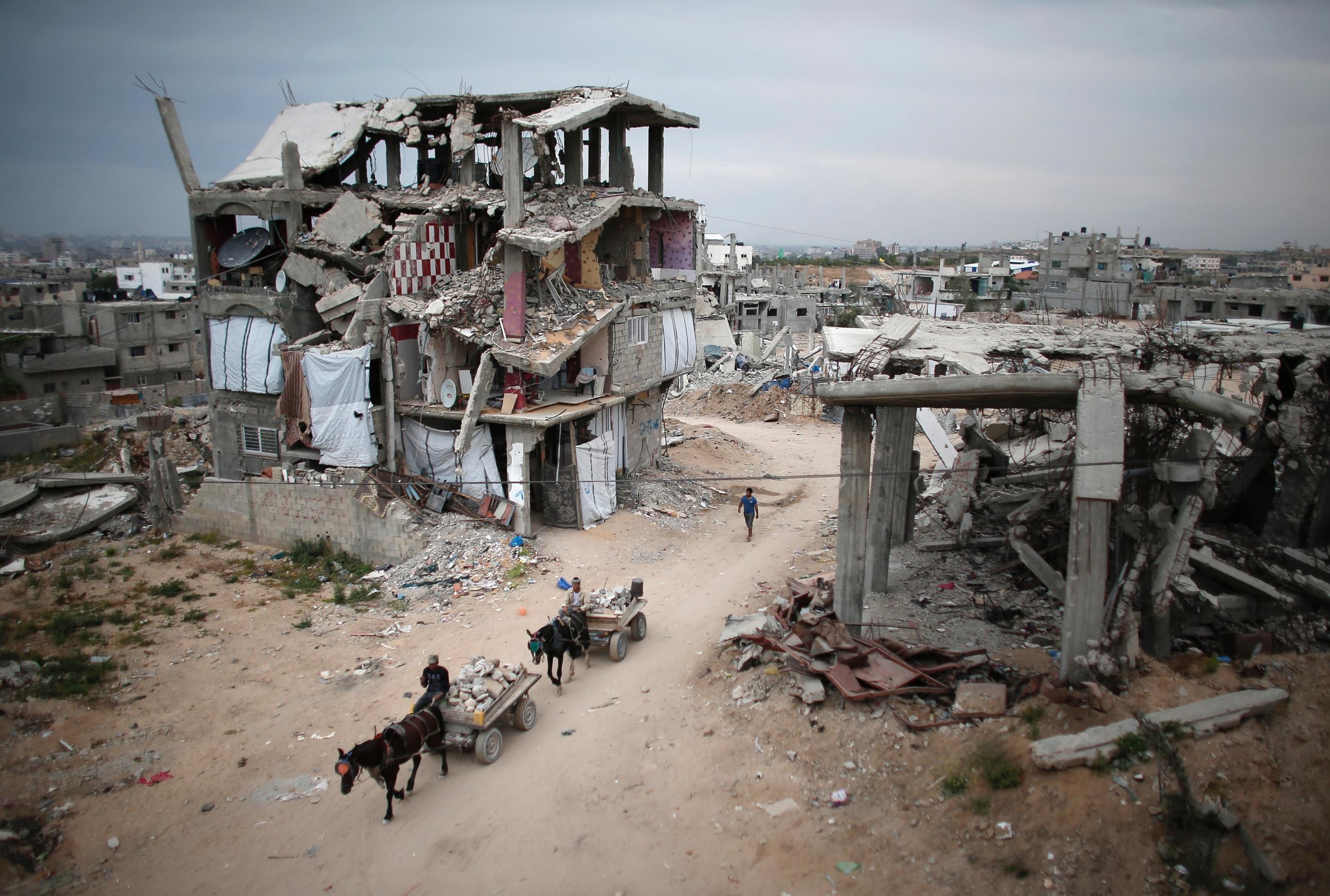
At a time when the world – or at least its media and pseudo-opinion makers – would have us believe that the Middle East is now breaking apart as a result of inter-religious hatred and warfare, it will be all the more necessary to read the work of Ussama Makdisi – a brilliant professor of history at Rice University in the US and, interestingly, Edward Said’s nephew – when his extraordinary and deeply penetrating study of ecumenism and the modern Arab world is published this autumn.
Like all great histories, the very first words of his text give us his theme. “Every history of sectarianism,” he writes, “is also a history of coexistence.” Makdisi happily concentrates on the northern and eastern part of the Middle East (the ‘mashriq’ in Arabic) – Lebanon, Syria, the occupied Palestinian territories, Israel, Jordan, Egypt and Iraq – rather than all the territory of the former Ottoman empire. This avoids any analysis of the most egregious Middle Eastern but non-Arab sectarian massacre of modern times: the genocide of a million and a half Christian Armenians by Muslim Turks (and Muslim Kurds) in 1915 and the succeeding years, along with the aforesaid Syriac Christians.
But the story of Arab coexistence, in the last years of the Ottoman empire and the century after its collapse, provides Makdisi with an opportunity to examine the Middle East’s common share in a global 19th-century revolution. This “revolution”, in Makdisi’s words – and it’s good to use the word in the non-violent sense – “introduced the profoundly important and historic principle of political equality among citizens, many of whom had been discriminated against or classified as inferior in centuries past.” These included Jews in Europe, blacks in the United States, and non-Muslims in the Ottoman Empire. In Ottoman domains, Makdisi suggests, this development occurred after 1860 when the Christians and Druze mercilessly assaulted each other in Lebanon and Syria.
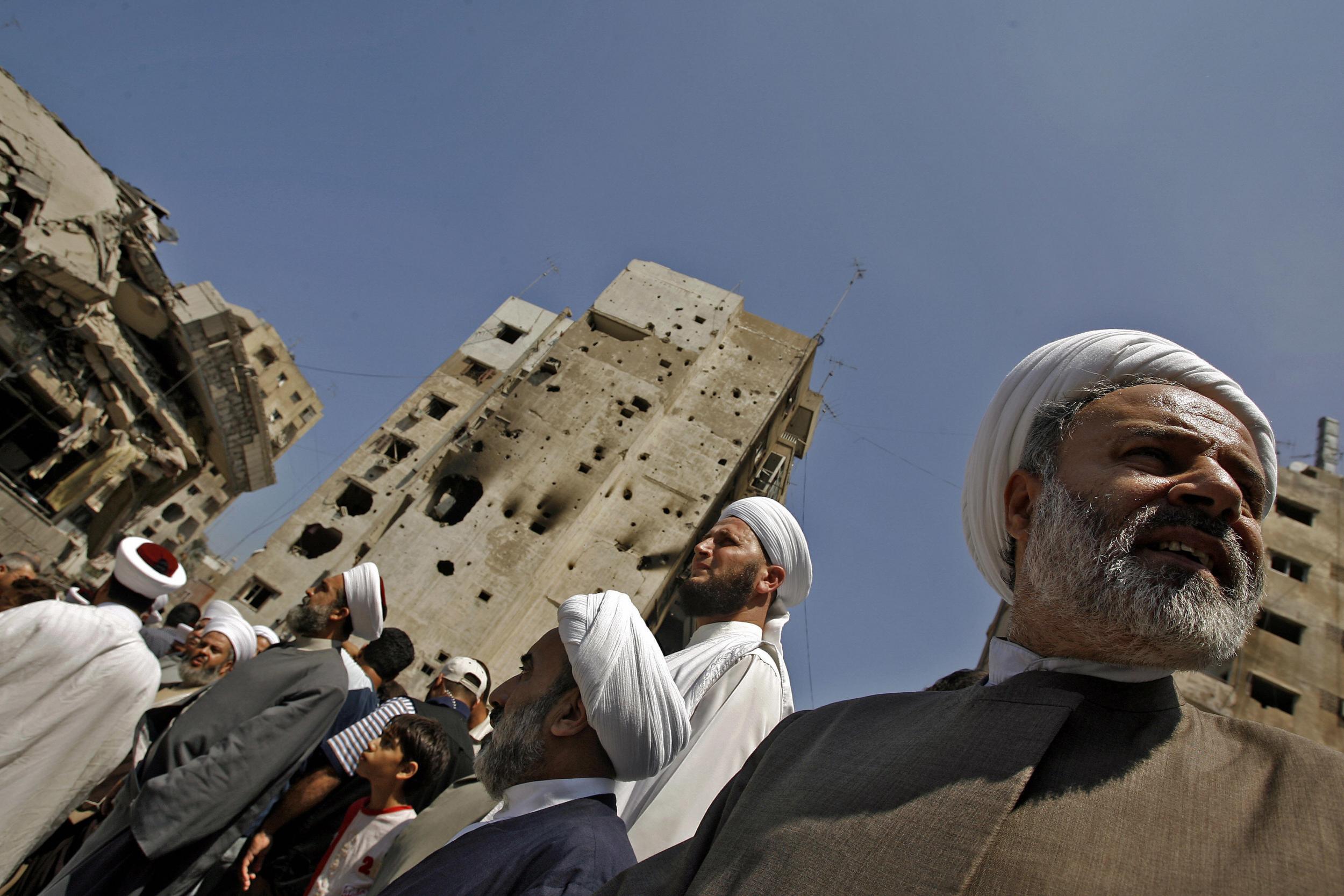
He likes to talk about the “ecumenical frame”, the scaffolding upon which the reconciliation of modern political “solidarities” (political equality, etc) were reconciled, with the reality of religious and ethnic differences in the region – which included a new political order which embraced both the “secularity” of citizens and (italics: and) the necessity of religiously segregated laws which governed (and still govern) marriage, divorce and inheritance.
When I read the page proofs of Makdisi’s admirably short book, I was immediately reminded of the comic moment when the late President Elias Hrawi of Lebanon suggested that he would like to introduce civil marriage to his country of freedom and coexistence. Far from applauding this magnificent attempt to bring Lebanon into the modern world, normally argumentative bishops and priests and vicars and otherwise suspicious Sunni and Shia imams and clerics immediately met in mutual conclaves hitherto unknown in the modern history of the Levant – to jointly denounce Hrawi’s divisive, unpatriotic and irreligious suggestion.
It not only encouraged what we might refer to as inter-faith marriage. Far more disastrously, it meant that the huge income obtained from church and mosque control of divorce and problems of inheritance would disappear, and might – horror of horrors – be retained by Christian and Muslim families. My own non-academic journalist’s conviction is that “religious” wars are not in fact created by divergent forms of faith but by property and money. Who holds the most land and the larger amount of treasure applies, I fear, rather too precisely to almost any “theological” dispute – whether this takes place in lands of oil, overseas investments or the control of real estate (as in ‘a Protestant parliament for a Protestant people’).
Makdisi notes with grim cynicism how the massacre of Christians in 1860 in Mount Lebanon and Damascus is dismissed in Arabic literature, even today, as the “haditha”, the “event” – the same word used by most Lebanese for their 1975-90 civil war. More perversely, as Makdidi says, this blood-letting is called “tawshat al-nasara” – the “hubbub of the Christians”. The tragedy of Makdisi’s narrative comes, inevitably, with the Balfour Declaration in favour of a Jewish “homeland” in Palestine when – these are my words, not Makdidi’s – a sectarian state for Jews was introduced to the Middle East at the moment when Arabs were (hopefully) adhering to a new model of non-sectarian secular life.
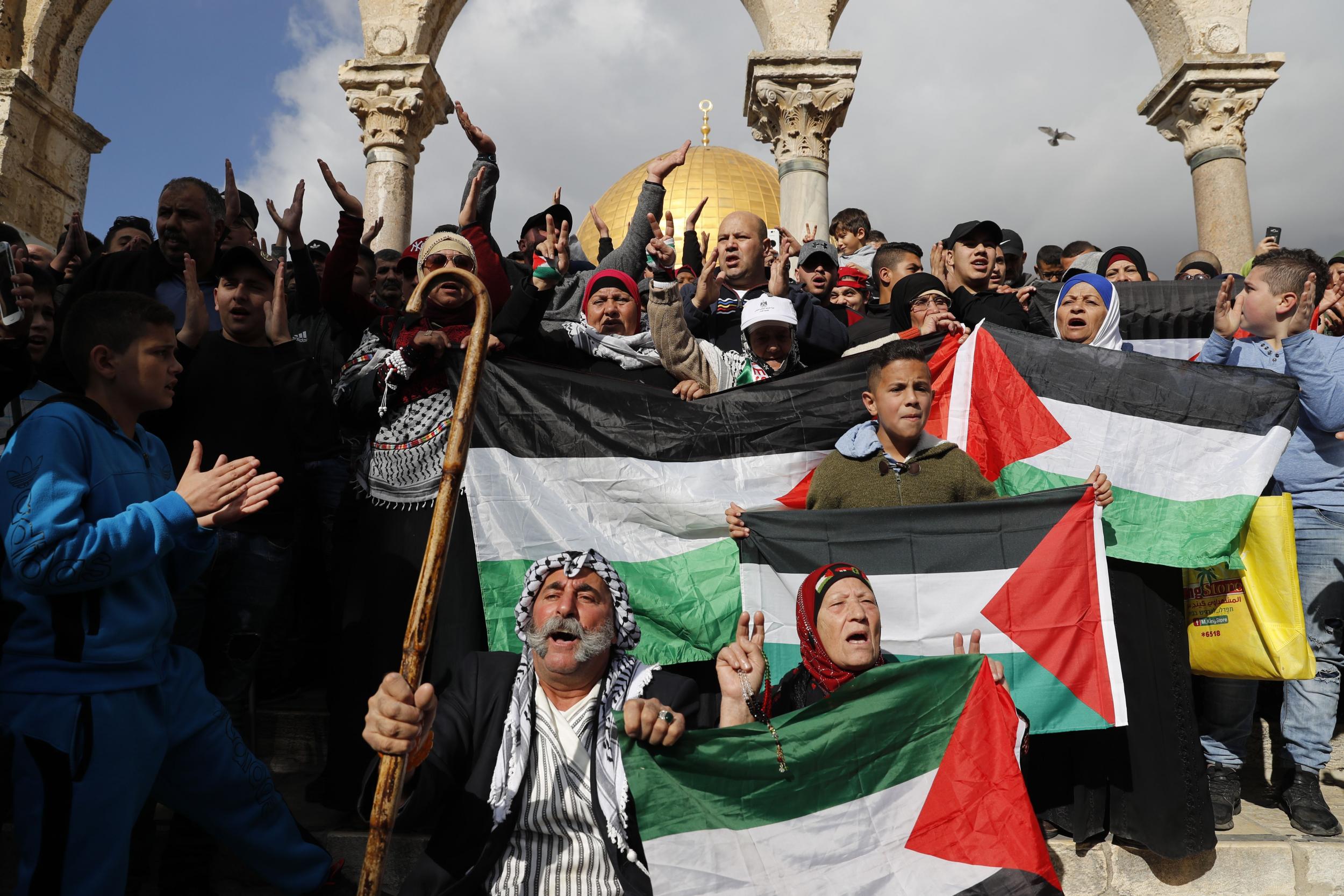
“The loss of a multireligious Palestine was a terrible blow that was compounded by the end of Jewish life in most of the Arab world,” Makdisi writes. “The destruction of the idea that one could be simultaneously Arab and Jewish still scars the Arab world.” And – again, these are my words – if Israel’s supporters object to my own reference above to that nation’s “sectarian state” (since it contains hundreds of thousands of Arab Muslims and Christians), Netanyahu’s support of the new law which makes Israel “the nation state of the Jewish people” should silence them all.
Talking of words, I have to say that Makdisi’s otherwise flawless thesis is occasionally crippled by his inability to shake off the fraudulent academic jargon which American universities now seem to inject into their scholars. Much of the text of Age of Coexistence is mercifully free of this language. But I sighed repeatedly when I had to negotiate “historicisin” “empathetic” (for sympathetic), “valorised”, “secularity”, “consociational”, ”coevalness”, “situate” (for place), and our old enemies “posit” and “space”. These words are the secret scripture of the clique, the little academic verbal and semantic ticks and contrivances designed to keep the elite of academia safe from proles like us. But Makdisi’s work is too important for these irritations to distract us. What he does is to remind us, repeatedly, of the critical declarations of secularism which existed in the history of the Middle East.
The tragedy of Makdisi’s narrative comes with the Balfour Declaration in favour of a Jewish “homeland” in Palestine when a sectarian state for Jews was introduced to the Middle East at the moment when Arabs were (hopefully) adhering to a new model of non-sectarian secular life
When the Sharif Hussain was negotiating with Colonel Henry McMahon over the future of the Ottoman Middle East – the all critical correspondence containing Britain’s most outrageous betrayal of the Arabs – he (Hussain) wrote of how “the Muslim is indistinguishable from the Christian, for they are both descendants of one forefather”, while McMahon challenged Hussain’s claim to Syria and what is now Lebanon on the grounds that they were not “purely Arab”. The Christians of the region, in other words, could not be “Arab” in the eyes of the British.
Hussain’s non-sectarian nationalism was all the more instrumental since it almost coincided with the 1919 constitution of Syria when Hussain’s son Faisal briefly ran his “Arab kingdom”, which guaranteed freedom of religious thought and religious practices for “all sects” and promised that each community (Christian, Muslim, Jewish) could administer its own personal status laws and local councils. In the same year, as Makdisi reminds us, the Egyptian Christian Coptic priest Qommus Sergius preached national unity from inside the great Al-Azhar in Cairo, the most venerable Muslim religious institution in Egypt, perhaps in the Arab world.
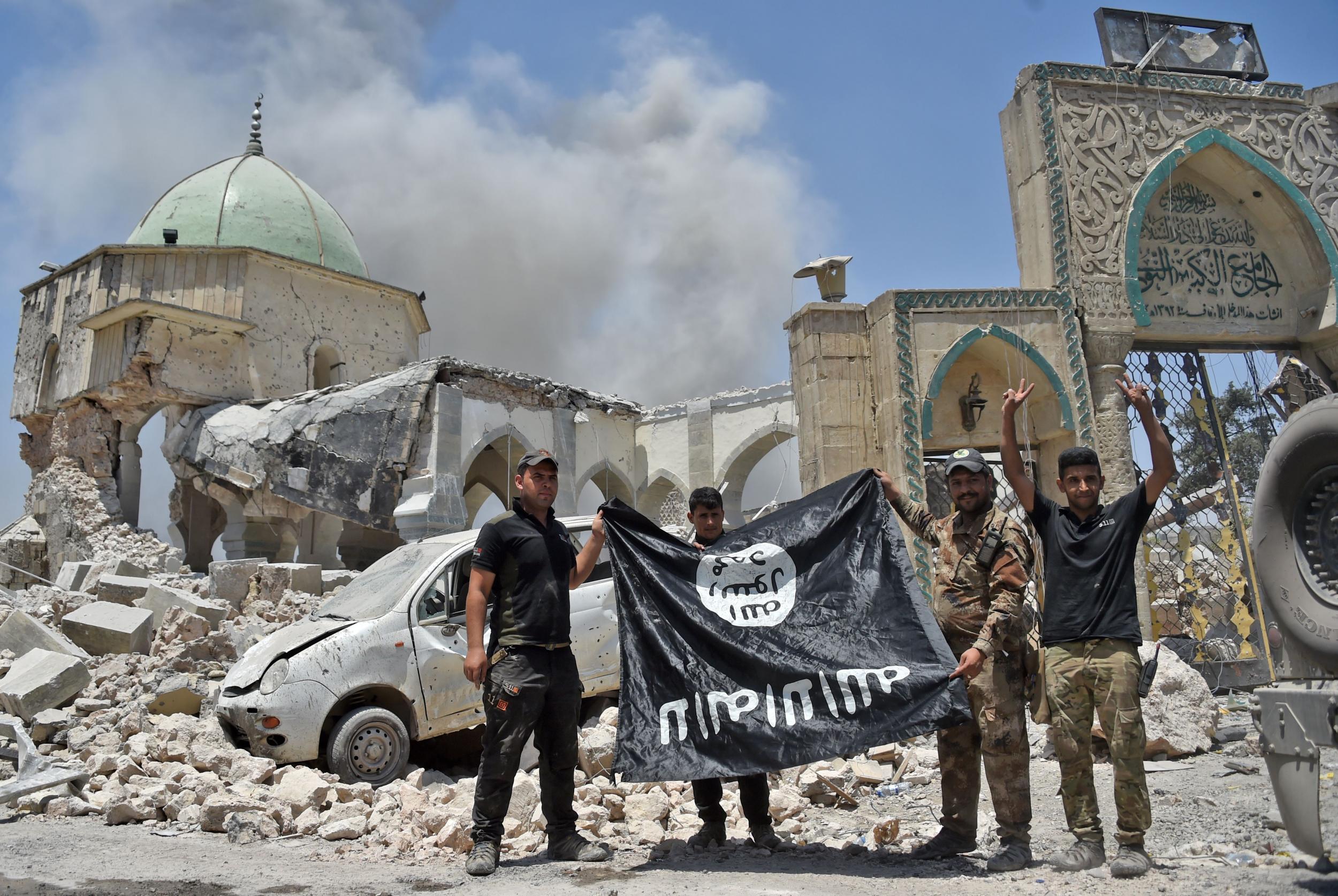
This “new” kind of secular nationalism was bursting forth within the Arab world at the same time as Anatolia was being emptied of its Christian Armenians by the Muslim Turks. Christian Arabs were largely unaffected and untouched by this act of genocide. Turkish reforms, originally secular in character and at first welcomed by the Armenian themselves, turned into sectarian nationalism and, I suspect, were already taking on the aspect of fascism when Ataturk created the Turkish state. Ataturk’s passing was mourned by the Nazi paper Volkisher Beobachter with a black-fringed front page. This heritage, alas, continues in Turkey even today.
Few Arabs in the Middle East today dispute the sectarianism which the French, British and later American empires re-injected into the Middle East. The French ripped Lebanon from Syria and set up minorities – especially the Alawites – to control Sunni Muslims in Syria. The British were intent on creating a Jewish “homeland” in a part of the Ottoman empire which had hitherto been a homeland for Jews, Muslims and Christians. Oddly, Lebanon survived with more freedom than most of its Arab neighbours. The primary task of government, Makdisi points out, was “to harmonise relations between communities, not democratise relations between individual secular citizens.” To Arab thinkers in Beirut and Damascus, including many Christians, ‘Arabism’ should be defined “not by ethnicity, blood or race ... but by a common culture”.
All essays must have their end. Makdisi’s conclusion is scarcely optimistic: “At the very moment ... when the vexed question of Muslim and non-Muslim appeared to have finally exhausted itself, at the cost of great human suffering and displacement in Turkey and the Balkans, British-backed Zionism obsessively and aggressively demarcated Jew from non-Jew. Colonial Zionism, in effect, created an “Arab’ question in Palestine and a ‘Jewish’ one in the Mashriq [sic] where neither had previously existed.” This may be a little too innocent, even twee.
Certainly, Makdisi does not avoid the creation of the Arab dictatorships. “The tragedy of the military nationalists in Iraq, Syria, and Egypt,” he writes, “was that their commitment to revolution was far more energetically manifested in their construction of post-colonial security regimes than it was in building postcolonial democratic secular states.”
The founder of the Arab Unity Studies Centre in Beirut, Khair El-Din Haseeb – a former governor of the Iraqi Central Bank, tortured and jailed by the Baathists until he wisely took exile in Lebanon – wrote that “the secular reformist impetus within the postcolonial Arab world had been overwhelmed by the ‘officer’s cap and the sheikh’s turban’.
In other words, while the military men destroyed modern Arab politics, Islamists threatened to destroy modern Arab culture. Mosques and churches could stand in this sparse environment. Political parties and trade unions were smashed. One of the great late 19th century Lebanese intellectuals, Boutros Boustani, a Christian translator of the Bible into Arabic, founded a school for Maronite Christian, Sunni and Shia Muslim children to educate pupils in a non-religious environment. In his self-financed newspaper, he preached that knowledge led to enlightenment which led, in turn, to “the death of fanaticism and the birth of ideals held in common…the fundamental cause of the trouble was the intolerance that is born of ignorance, and that the only way to peace among the sects lay across the untilled field of knowledge.”
Or, as we would say today with Blairite repetition: education, education, education. Perhaps that is why Lebanon, the most educated population in the Arab world, recovered from its 15-year civil war in the late 20th century. Humanist education remains the watchword of Tarif Khalidi. It’s a lonely battle in a landscape of generals and autocrats who will use history but never acknowledge its lessons. That is why the Sharif Hussains and the King Faisals and the Salibis and the Boustanis and the Makdisis are so valuable.
Then I am reminded of a walk along a Manhattan pavement during the Iraqi civil war atrocities after the Anglo-American invasion. There on a news-stand was the latest copy of Time magazine, a journal I usually stay away from. But its front cover promised “how to tell the difference” between a Sunni and a Shia. Different ways of praying, different kinds of mosques. I bought it, of course. Heaven spare us all.
Join our commenting forum
Join thought-provoking conversations, follow other Independent readers and see their replies
Comments